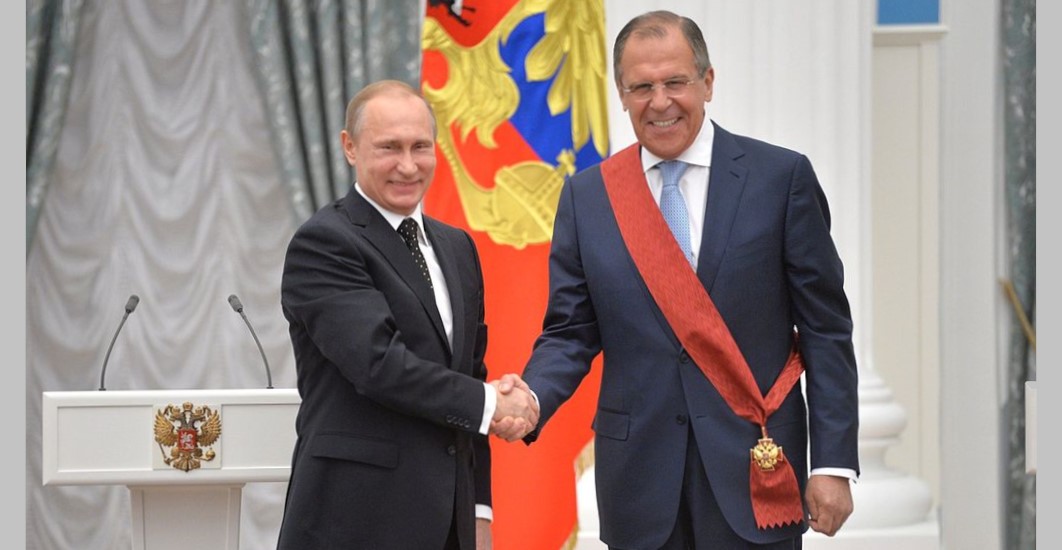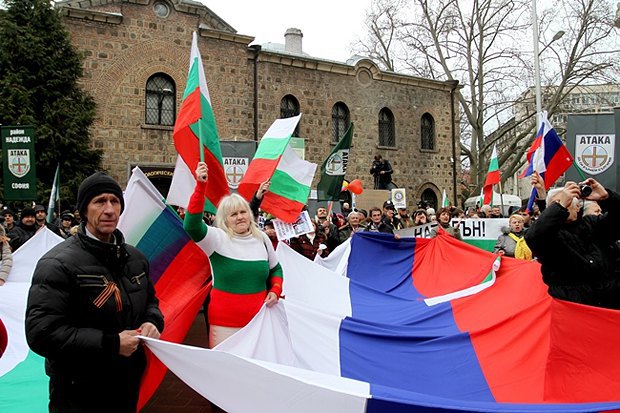On 19 January, Russian Deputy Foreign Minister Sergei Ryabkov said Russia was ready to consider either discarding the “formula of the Bucharest summit” which had put Ukraine and Georgia on a membership track, or a US commitment to “never vote for Ukraine and other countries to join NATO.”
With his statement, Ryabkov statement has de-facto narrowed down multiple extreme demands that Russia had put forward to the US and NATO a month ago to only one: keeping Ukraine and Georgia away from NATO.
Read more on Ryabkov’s statement and Russia’s initial demands to the US and NATO in our previous article:
Russia downscales demands to keeping Ukraine, Georgia out of NATO
Claimed summary of the Russian demands
Now, on 21 January, the Russian foreign ministry has published a document titled “Answers of the Ministry of Foreign Affairs of the Russian Federation to media questions received at the press conference following the results of the activities of Russian diplomacy in 2021.”
The NATO-related statements in this document double down on all the initial demands, moreover urge to withdraw “foreign troops” from Bulgaria and Romanis, NATO member countries, and return NATO to its 1997 configuration.
The document boils down Russia’s demands to NATO to three points:
“As for the negotiating agenda, we have formulated it very clearly and it is built around three key elements: the rejection of NATO expansion, of the deployment of strike weapons systems near Russian borders, the return of the bloc to the configuration at the time of the signing of the Russia-NATO Founding Act of 1997,” the document reads.
Meanwhile, the document doesn’t mention Ukraine at all in NATO-related answers given by the ministry.
Kicking out Bulgaria and Romania from NATO (and 12 other countries)
Answering the question of what Russia’s demand that NATO should return to the 1997 configuration means for Bulgaria and Romania – leaving NATO, getting rid of American bases, or something else, the Russian foreign ministry gives the following answer:
“One of the pillars of our initiatives you mentioned was deliberately formulated with the utmost clarity and does not allow for any ambiguous interpretations. We are talking about the withdrawal of foreign forces, equipment and weapons, and other steps in order to return to the configuration as of 1997 on the territory of countries that were not NATO members on the specified date. These include Bulgaria and Romania.”
Since 1997, 14 independent countries have become NATO members:
- 1999: the Czech Republic, Hungary, and Poland became the first former Warsaw Pact countries to join NATO.
- 2004: Bulgaria, Romania, Slovakia, Slovenia joined NATO, plus, the first three former Soviet republics became NATO members – Estonia, Latvia, Lithuania, known as the Baltic countries.
- 2009: Albania and Croatia were admitted to NATO.
- 2017: Montenegro gets NATO membership.
- 2020: North Macedonia joins the Alliance.
Romania has called this Russian demand “unacceptable,” saying that
“Such a demand is unacceptable and cannot be part of a negotiation,” Romania’s foreign ministry said in a news release.
Bonus: Russia loves non-bloc countries
At a press conference on 13 January, NATO Secretary-General Jens Stoltenberg made a remark on Finland and Sweden:
“Finland and Sweden are very close partners. They are enhanced-opportunity partners. We have worked together with them, we have exercised together with them, we have trained together with them. They meet NATO standards in most areas. They have very well-organized and well-governed defense and security institutions. So in many ways, of course, they are very close to NATO in all aspects. So in that sense, this can go very quickly if they decide to apply. But at the end of the day, this will be a political decision,” Mr. Stoltenberg said.
Now, the Russian MFA replying the question whether the fact that the Secretary-General “guaranteed Finland and Sweden a speedy accession to the Alliance” would “affect the agenda of negotiations on security guarantees,” said in the document:
“We regard the statements of the NATO Secretary-General regarding the readiness to admit these countries into the alliance as an unceremonious attempt to exert external pressure on the policies of Finland and Sweden, with whom we have long-standing friendly relations and whose effective contribution, as non-aligned states, to the formation of European security, we highly appreciate.”
Before explaining the agenda issues, the MFA added,
However, non-bloc Georgia in 2008 and non-bloc Ukraine since 2014 to this day seem to have proved just the opposite.
Moreover, Pyotr Tolstoy, Vice Speaker of the State Duma, said that Russia should expand to its borders of 1917. Those included most of modern Poland, Ukraine, Finland, Belarus, the Baltic and Middle Asian states.
Further reading:
- Russia downscales demands to keeping Ukraine, Georgia out of NATO
- Russia-West talks have ended in uncertainty. Now it’s time to act.
- NATO said “no.” Outcomes of Russia talks with the West
- NATO and Russia agreed to talk more at Brussels talks
- Daily review: little agreement at NATO-Russia talks; 80 Ukrainian soldiers perished in 2021; Day of Political Prisoner
- NATO coordinates position ahead of meeting with Russia
- Daily review: “Difficult” US-Russia talks on “security guarantees,” Germany arrests hero of war against Russia






